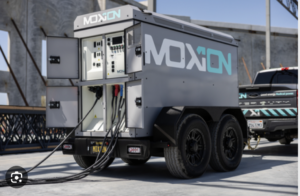Having seen cosmetics, jewelry and pots and pans hawked on TV infomercials, Toyota took to the home-shopping airwaves Sunday to see if it could drum up interest in its hybrid cars.
Toyota officials said they were thrilled with the results. Spokesman Steve Curtis said they received more requests for product information after the first hour than they had expected to get all day.
HSN, formerly the Home Shopping Network, says it’s the first time in its 34-year history that an automaker pitched its lineup to its audience, which is about 90% female.
Toyota used three one-hour blocks to explain its hybrid lineup. Normally, products are sold on HSN, but Toyota couldn’t directly sell the cars because of state dealer franchise laws and other complications.
Toyota says it was drawn to the network by the chance to have the time to fully explain its technology. “A lot of our research shows people don’t understand how hybrid technology works,” says Ed Laukes, a Toyota vice president.
The toughest sell on the novel idea was inside Toyota. “My team was skeptical,” Laukes acknowledges. They weren’t sure that a product demonstration on HSN worked to burnish the brand, or ultimately, to sell cars.
But Laukes says he was impressed by HSN as a classy operation with a strong reputation and ironclad return policy. It also got around not being able to sell by encouraging viewers to call instead to get free coffee mugs and to qualify for $1,000 certificates for free gas or HSN shopping credit if they go through with a car purchase.
On the broadcast, a pair of Toyota specialists enthused about the features of various Prius models, as well as hybrid versions of the Camry and Avalon sedans and Highlander crossover. They kept hammering on their impressive gas mileage, while urging viewers to call for the promotional items.
HSN executives say they were thrilled by the “unprecedented” event as more evidence on how far the channel has come. These days, HSN features celebrities such as chef Wolfgang Puck and also is selling more sophisticated products such as laptop or tablet computers.
“We have an engaged customer, and they turn to us for expert advice,” says Bill Brand, HSN’s head of marketing.” As for viewers not being able to buy: “We’re selling the idea this is the right car for them. It is less about selling and more about inspiring.”
Ian Beavis, executive vice president of Nielsen Automotive and former U.S. marketing chief for Kia and Mitsubishi, says Toyota might be making a good move.
“If you can get (the time) for the right price and at the right time, it is a perfectly acceptable environment to reach women,” Beavis says. “New technology is intimidating, and women, in particular, don’t enjoy going to a dealership. This environment allows them a long-form tutorial approach that can demystify hybrids and fully explain the benefits.”


 Moxion and NUE
Moxion and NUE